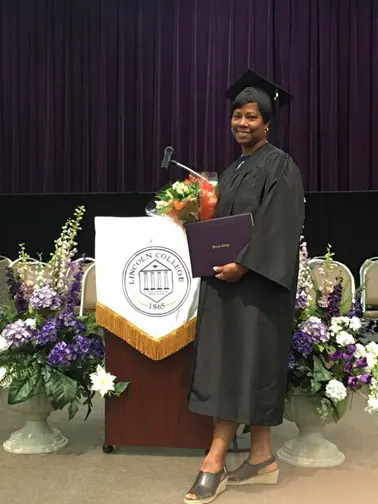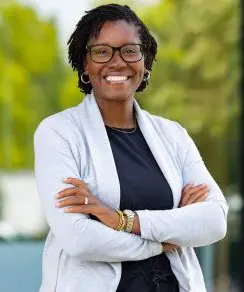Associate Director's Note
Community colleges are essential for adult learners. According to the American Training Survey (2020), community colleges were the third most popular place for adults to get training, second only to online programs. Adult learners, once called "non-traditional learners," are usually students 25 years or older who are going to community colleges for the first time or returning while managing responsibilities such as work, parenting or even parole. Community colleges’ nimbleness allow such institutions to serve a variety of needs adult learners bring—whether it’s reskilling or wanting to move beyond a high school diploma or GED, or even trying to make sense of credits already earned. In fact, in June 2023, the Illinois Board of Higher Education (IBHE) said that almost two million people in Illinois had gone to college but hadn't earned a degree yet, with 85,000 identified as potential completers.

I am continually inspired by my favorite adult learner, my mom, Tina (at left). While she attempted to attend college following high school graduation, her path quickly changed when I arrived! As my sisters and I left home, she found herself wanting to fulfill the promise she made to her dad—to graduate. Attending her local community college in 2012, she shared with me the challenges of being an adult learner where learning often centered traditional aged students. She persisted, earned her associate's degree in science from Richland Community College and kept on going, earning a bachelor’s degree in healthcare administration from Lincoln College. And it keeps me questioning: How many more Tina’s are out there and how can we support them with their goals?
According to 2023 data from the Illinois Community College Board (ICCB), at least 34% of Illinois community college students are adult learners ages 25 or older. In fall 2023, 50% of enrolled students were recent high school graduates, while the other half delayed their enrollment, showing potential growth in the future. In this summer edition of UPDATE, we engaged authors who were doing work in adult education and invited them to share trends, practice, policy and research related to this potential growth. We invite you to engage with the narratives of diverse adult learners, including those in rural Washington who have completed a community college baccalaureate degree, individuals impacted by the criminal legal system, adults with disabilities, learners in urban contexts and those who might draw upon a cyclical framework informed by Diné/Navajo Elder teachings, designed to guide adult learners toward a state of beauty, balance and harmony.
Additionally, check out our recently released Adult Learner Guidebook, which has information about key subgroups and is unique in its focus on the ALICE (asset-limited, income-constrained, employed) segment of the adult learner population. Our team is excited to keep updating and hosting these resources for our local and state partners, offering data and guidance on adult learners and their distinct needs.
Gianina Baker, OCCRL Associate Director

